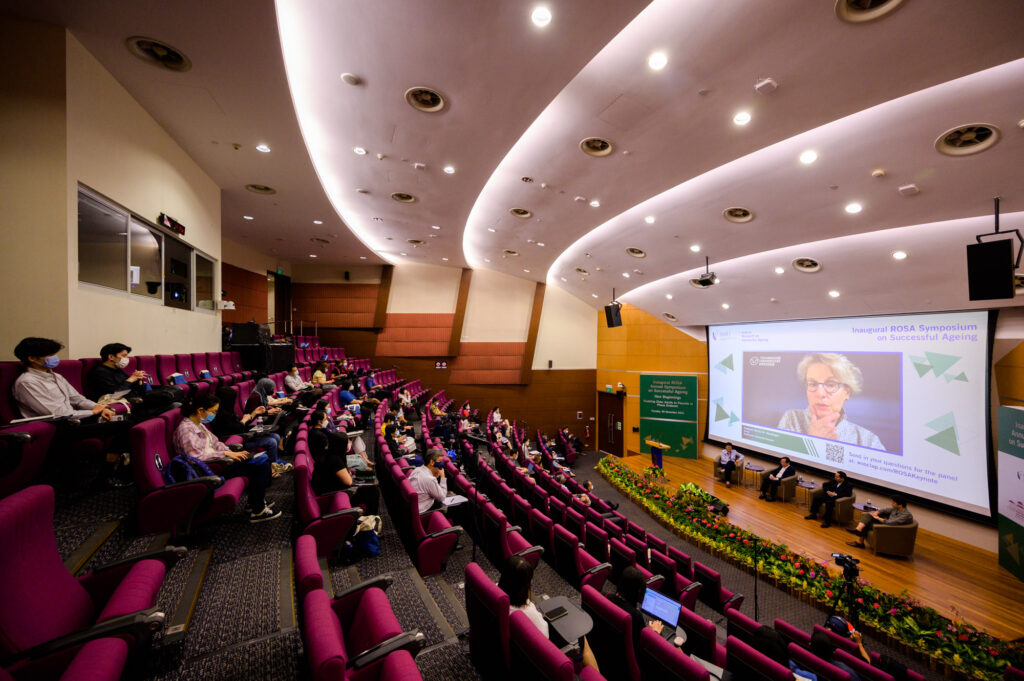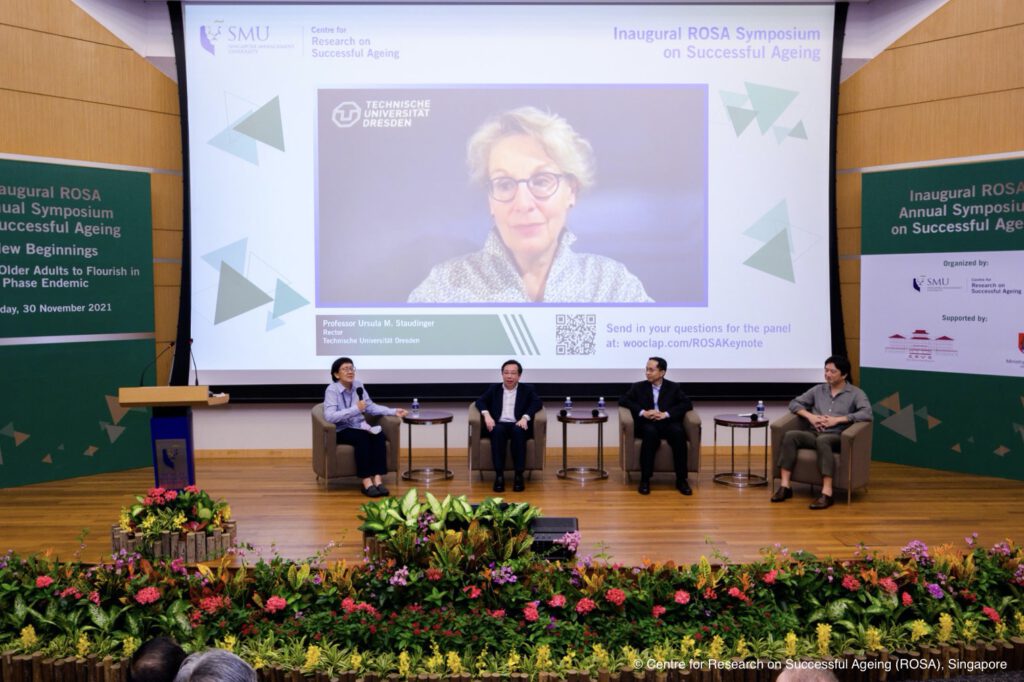The Centre for Research on Successful Aging (ROSA) of Singapore Management University (SMU) held its first annual symposium on 30 November, 2021. Ursula Staudinger was invited to hold the keynote lecture and participate in the panel discussion. Due to the uncertain developments surrounding the Omicron variant, she was not able to travel to Singapore but participated online.
The theme of the event was “New beginnings – enabling older adults to flourish in phase endemic”. It focused on how older adults can be supported to not only adapt to but excel in treating COVID-19 as endemic. As Singapore transitions into a new phase of the global pandemic, there is much uncertainty regarding what the future holds. Singapore has a rapidly ageing population and many older adults have found it difficult to cope the pandemic so far. Thus, a proactive approach to shaping the future for the advantage of society is needed.

More healthy years
In her keynote lecture Staudinger emphasized how honored she was to be affiliated with ROSA and to have been able to contribute to the development of the Singapore Life Panel over the years. “For me, Singapore has always been a model community and nation in how to approach aging and how to optimize it,” she said.
Staudinger shared her latest research findings with the audience in her presentation titled “The Positive Plasticity-Paradigm: Re-Thinking Human Aging”. “If we increase public health measures, there is still enormous potential in optimizing human aging with regard to average life expectancy,” she noted. “And we are not just talking about more years, but about more healthier years.” Yet Staudinger also mentioned that there was great variability in terms of gains within countries depending on socioeconomic conditions. “It shows us how modifiable human aging is.”

Societal setup is pivotal for old adults
“Human aging is not determined,” Staudinger continued. “Rather, it is a very complex, multilevel dynamic system.” To understand human aging, one must investigate the three components “organism”, “person” and “context”. These three factors interact with each other and influence the aging process. “The settings we create in our societies have a massive impact on how we are aging,” she emphasized. Contrary to popular belief, genetics only influence aging by approximately 20 percent.
For instance, interaction between younger and older adults, according to Staudinger’s research, is an important motivational booster that increases brain functioning. As humans grow older, they like to pass on their experiences to the younger generation. Therefore, societies of longer lives and, more specifically, employers should also provide such settings. However, it is important that in creating intergenerational work settings older adults feel valued and not debilitated or “outdated” as this would have a demotivating effect.
“Unfortunately, the COVID-19 pandemic is a factor that destabilizes human aging,” Staudinger expressed. “It is not only a big risk to the physical health of people, but it also influences our societal setup and leads to isolation, particularly of the older ones in our society.” When old-aged people are lacking social stimulus, emotional support, and physical contact, their wellbeing and survival is jeopardized. Therefore, particular attention should be paid to this last phase of life while mastering this pandemic, especially since it will not likely be over any time soon.